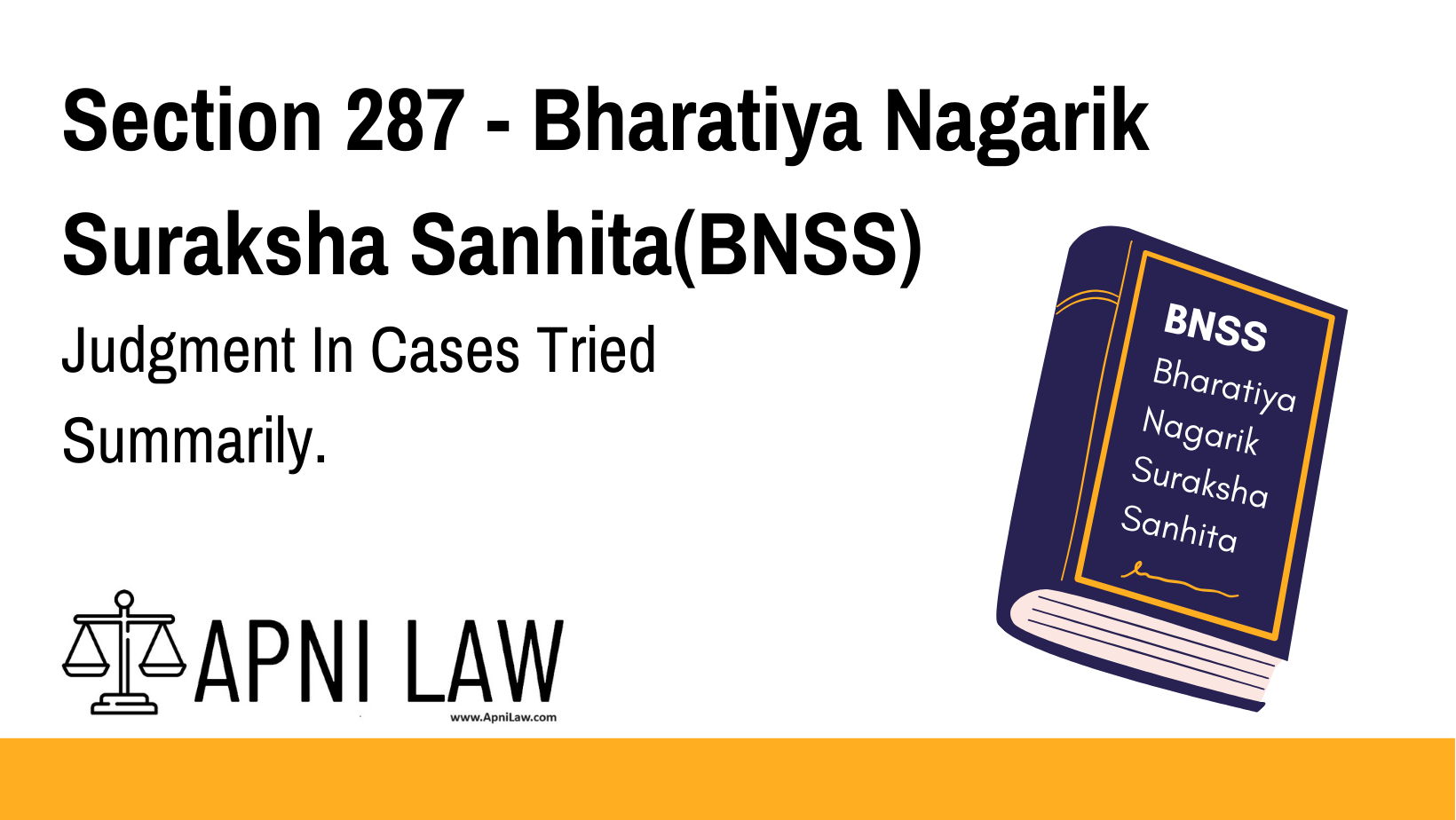Code: Section 287 BNSS
287.
In every case tried summarily in which the accused does not plead guilty, the Magistrate shall record the substance of the evidence and a judgment containing a brief statement of the reasons for the finding.
Explanation of Section 287 BNSS
Substance of Evidence
Section 287 mandates that in every summary trial where the accused does not plead guilty, the Magistrate must record the substance of the evidence presented during the trial. This means the Magistrate is required to document a concise and clear summary of the key points of the evidence presented by the prosecution and defense.
Judgment and Reasons
The Magistrate is also required to issue a judgment containing a brief statement of the reasons for the finding. This ensures that the judgment is not just a verdict but is accompanied by an explanation of why the Magistrate arrived at that decision, enhancing transparency in the legal process.
Illustration
Example 1: Summary Trial with No Guilty Plea
In a summary trial for theft, the accused denies guilt. The Magistrate listens to the evidence presented by both parties, including witness testimonies. After considering the case, the Magistrate records the key points of the evidence and issues a judgment, briefly explaining the reasons for either acquitting or convicting the accused.
Example 2: Judging Based on Evidence
Suppose in a summary trial, the accused does not plead guilty to the charge of assault. After hearing the evidence from witnesses, the Magistrate must write down a brief summary of the evidence and provide reasons for the judgment—whether the accused is convicted or acquitted.
Common Questions and Answers on Section 287 BNSS
1. Why is it important to record the substance of the evidence in summary trials?
- Answer: It ensures that there is a clear record of the facts presented during the trial, which can be referred to later if needed, such as in appeals or further legal proceedings.
2. What does the judgment in a summary trial include?
- Answer: The judgment includes a brief statement of the Magistrate’s reasons for the decision, helping to explain why a conviction or acquittal was reached.
3. Is a detailed explanation required for the judgment in summary trials?
- Answer: No, only a brief statement of reasons is required, ensuring that the judgment is both clear and concise.
Conclusion
Section 287 BNSS ensures that in every summary trial where the accused does not plead guilty, the Magistrate records the substance of the evidence and provides a brief but clear explanation of the judgment. This maintains fairness, transparency, and accountability in the judicial process.










